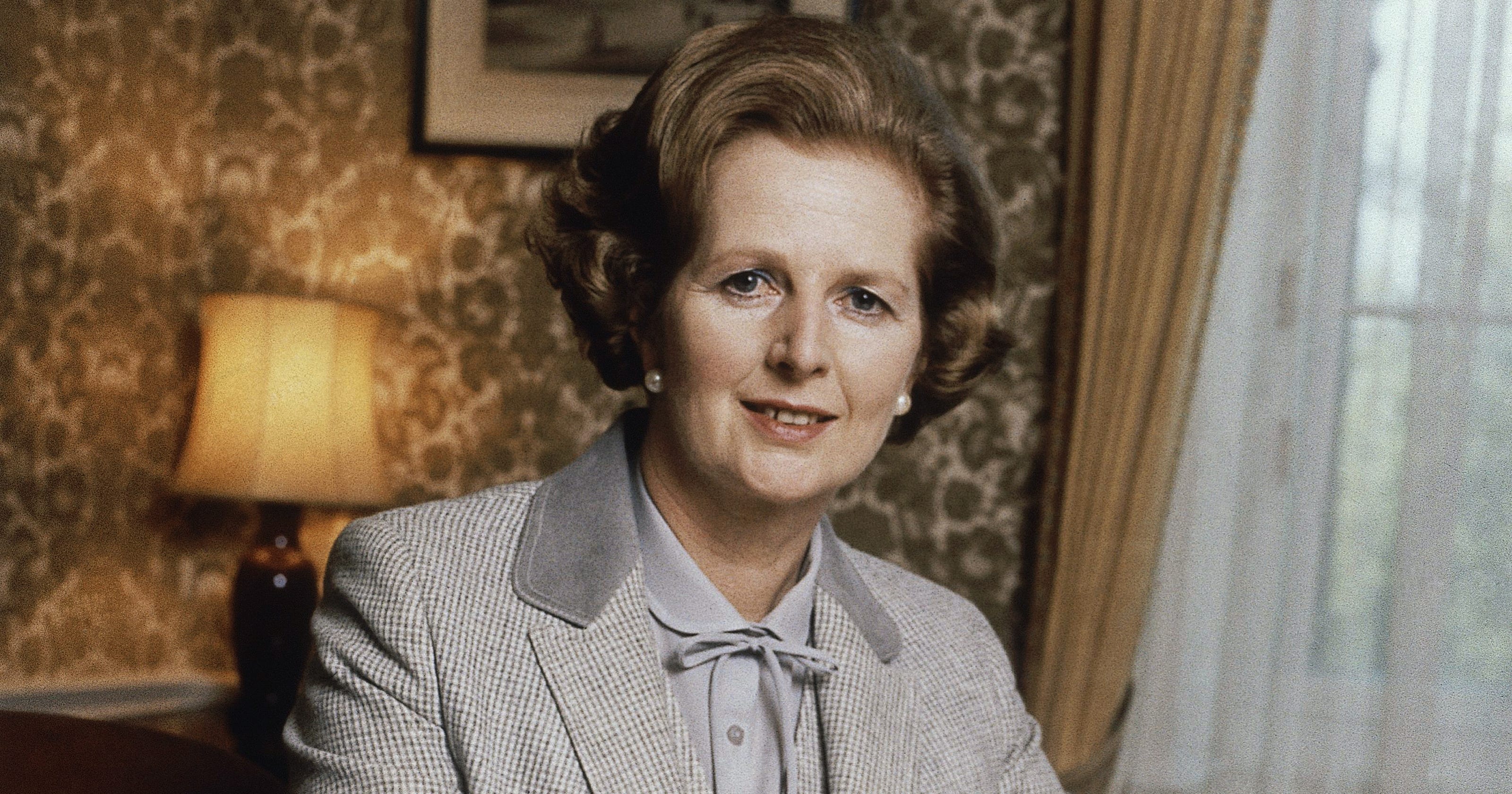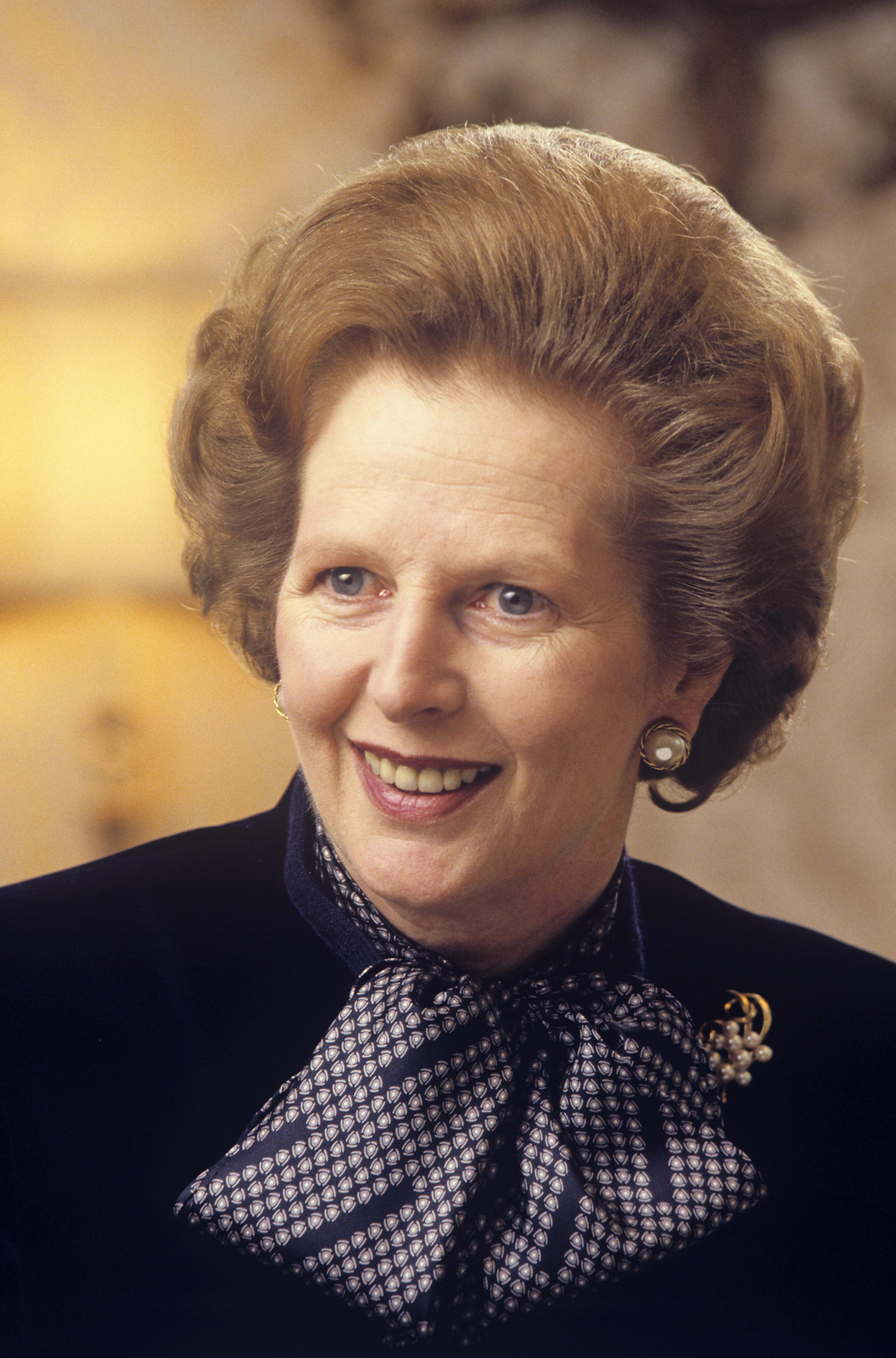
Margaret Thatcher, 'Iron Lady' of British politics, is dead - Source www.usatoday.com
Through in-depth analysis and extensive research, our guide provides an unparalleled exploration of Thatcher's transformative leadership, including her economic reforms, social policies, and foreign relations.
FAQs about Margaret Thatcher: The Iron Lady Who Reshaped Britain
This FAQ section provides concise answers to commonly asked questions regarding Margaret Thatcher's life, policies, and legacy.
Question 1: What was Margaret Thatcher's political ideology?
Thatcher was a staunch proponent of free markets, privatization, and reduced government intervention in economic affairs. Her policies embraced classical liberalism, monetarism, and the promotion of entrepreneurship.
Question 2: What were some of Thatcher's key economic policies?
Thatcher implemented a range of economic reforms known as "Thatcherism," which included reducing taxes, deregulating industries, privatizing state-owned enterprises, and controlling inflation.
Question 3: How did Thatcher's policies impact British society?
Thatcher's policies had significant social consequences. They contributed to a rise in unemployment, the erosion of trade unions, and increased income inequality.
Question 4: What was Thatcher's role in the Falklands War?
Thatcher's resolute response to Argentina's invasion of the Falkland Islands in 1982 reinforced her image as a strong leader and boosted her popularity.
Question 5: What were the main criticisms of Thatcher's policies?
Critics argued that Thatcher's economic policies exacerbated social divisions, increased poverty, and undermined public services. They also questioned the fairness and sustainability of her approach.
Question 6: How is Thatcher's legacy viewed today?
Thatcher remains a polarizing figure in British politics. Her supporters credit her with revitalizing the British economy and making it more competitive, while her detractors criticize her for promoting neoliberal policies that led to social and economic inequality.

The Iron Lady’s vision for UK: No place for Asians - The Sunday - Source sundayguardianlive.com
For further insights into Margaret Thatcher's life and legacy, refer to the comprehensive article Margaret Thatcher: The Iron Lady Who Reshaped Britain.
Tips
Margaret Thatcher, fondly remembered as the "Iron Lady," not only revolutionized British politics but also left a lasting legacy of leadership lessons. Here are some key tips inspired by her remarkable career:
Tip 1: Stand Firm in Your Convictions
Thatcher's unwavering commitment to her beliefs guided her through countless challenges. Embrace the courage to advocate for what you believe in, even when facing opposition.
Tip 2: Seek Knowledge and Embrace Innovation
Thatcher understood the importance of lifelong learning. Stay curious, expand your knowledge, and be open to new ideas that can drive progress and solve problems.
Tip 3: Lead with Determination and Drive
Thatcher possessed an unwavering determination that fueled her ability to implement transformative policies. Set ambitious goals, work relentlessly, and never allow setbacks to deter you.
Tip 4: Foster a Culture of Accountability
Thatcher demanded accountability from both herself and those around her. Create a culture where individuals are empowered to take ownership of their responsibilities and are held to high standards.
Tip 5: Embrace Free Markets and Individual Freedom
Thatcher was a staunch advocate for free markets and individual liberties. Encourage competition, reduce government intervention, and empower individuals to make their own choices.
By incorporating these principles into your leadership approach, you can emulate the spirit of Margaret Thatcher and reshape your own sphere of influence.
Margaret Thatcher: The Iron Lady Who Reshaped Britain
Margaret Thatcher's premiership, from 1979 to 1990, left an undeniable imprint on Britain. Her policies, deeply rooted in conservatism, reshaped various aspects of British society, economy, and politics, earning her the moniker "The Iron Lady."
- Economic Transformation: Thatcher's policies, known as Thatcherism, emphasized privatization, deregulation, and a reduction in the role of the state in the economy.
- Political Legacy: Thatcher's strong leadership style and unwavering principles left a lasting mark on British politics, with her impact still debated today.
- Social Conservatism: She upheld traditional family values and sought to curtail the influence of trade unions.
- International Stance: Thatcher was a staunch supporter of free markets and played a key role in shaping Western Europe's response to the Cold War.
- Cultural Symbol: Thatcher became a symbol of both admiration and controversy, inspiring support and opposition in equal measure.
- Gender and Leadership: As the first female Prime Minister of the United Kingdom, she broke barriers and became a role model for women in politics.
Thatcher's legacy remains a subject of contention, with opinions ranging from admiration for her strong leadership and economic policies to criticism of her divisive approach and the social consequences of her policies. Nevertheless, her impact on Britain cannot be denied, and she remains a towering figure in the country's modern history.

Why Do Third Wave Feminists Hate Margaret Thatcher? - Washington Examiner - Source www.washingtonexaminer.com
Margaret Thatcher: The Iron Lady Who Reshaped Britain
Margaret Thatcher, Britain's first woman prime minister, left an indelible mark on the country during her tenure from 1979 to 1990. Her policies, known as Thatcherism, aimed to reduce the role of the state in the economy and society, and promote free market principles. Thatcherism had a profound impact on Britain, transforming its economic and political landscape.

Meryl Streep, Phyllida Lloyd, Abi Morgan and Harry Lloyd THE IRON LADY - Source collider.com
Thatcher's economic policies, including privatization, deregulation, and tight monetary control, were designed to stimulate economic growth by fostering competition and reducing government spending. These policies led to a significant shift in the British economy, reducing the size of the public sector and increasing the role of private enterprise. Thatcher's policies also aimed to address the issue of high inflation, which had plagued the British economy in the 1970s. Her tight monetary policy, implemented by then-Chancellor of the Exchequer Geoffrey Howe, brought inflation under control but also led to high unemployment.
Thatcher's social policies were equally transformative. She implemented reforms in education, healthcare, and social welfare, with the goal of reducing the dependency of individuals on the state. Her education reforms emphasized traditional values and discipline, while her healthcare reforms introduced market mechanisms and reduced government funding. Her social welfare reforms reduced the availability of benefits and encouraged self-reliance.
Thatcher's tenure was marked by both domestic and international challenges. She confronted the powerful trade union movement, curtailing its ability to disrupt the economy through strikes. She also played a key role in the Falklands War, a conflict with Argentina over the disputed Falkland Islands, which resulted in a British victory and bolstered her popularity.
The impact of Thatcherism on Britain remains a subject of debate. Supporters of Thatcherism credit it with modernizing the British economy, making it more competitive and reducing inflation. They argue that her policies fostered economic growth and created jobs. Critics of Thatcherism argue that it led to increased inequality, social division, and a decline in public services. They also point to the rise of unemployment and homelessness during her tenure.
Margaret Thatcher's legacy is complex and contested. Her policies had a profound impact on Britain, transforming its economic and political landscape. Her unwavering commitment to free market principles and her willingness to confront powerful vested interests left a lasting mark on the country. Whether Thatcherism was ultimately beneficial or harmful to Britain remains a subject of ongoing debate.
Table: Key Points of Thatcherism
| Economic Policy | Social Policy |
|---|---|
| Privatization | Education reforms emphasizing traditional values and discipline |
| Deregulation | Healthcare reforms introducing market mechanisms and reducing government funding |
| Tight monetary control | Social welfare reforms reducing the availability of benefits and encouraging self-reliance |